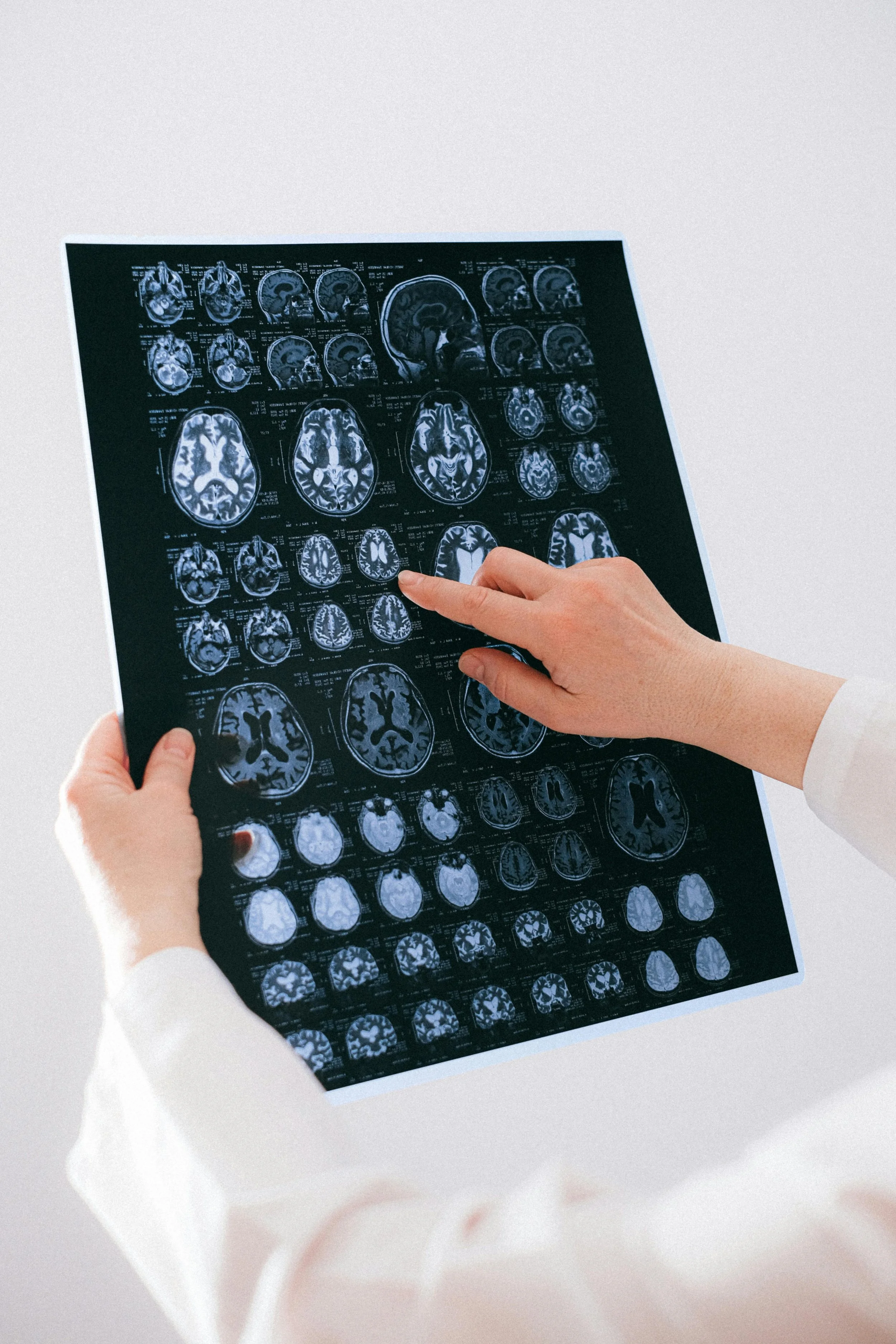Supporting Neurodiverse Employees: Practical Workplace Tips
Creating an inclusive workplace is more than a ‘trend’, it’s a responsibility. One important part of inclusion is supporting neurodiverse employees. Neurodiversity refers to the natural differences in how people think, learn, and process information. These differences are a normal part of human variation.
Daily Habits That Actually Protect Your Mind
Starting a conversation about brain health usually feels a bit heavy, like we’re waiting for something to go wrong before we pay attention to it. But your brain isn't just a "black box" that works until it doesn't. It’s more like a muscle; if you use it in the right ways and give it the right fuel, it actually gets more resilient.
Brain Fog vs. Cognitive Decline: What’s Normal and What’s Not?
Have you ever walked into a room and completely forgotten why you went there? Or maybe you’ve struggled to find a common word while telling a story?
For many of us, these moments trigger a sudden wave of panic: Is this just stress, or is it something more serious?
In a world that’s constantly "on," our brains take a lot of heat. Distinguishing between brain fog and cognitive decline is essential for your peace of mind and your long-term health.
Training Your Brain for Focus and Calm with Mindfulness
Through a process called neuroplasticity, your brain physically reshapes itself based on your thoughts, environment, and habits. By practicing mindfulness, you aren't just calming down; you are literally rewiring your neural pathways for better focus and emotional resilience.
5 Science-Backed Habits for Peak Cognitive Performance
Have you ever had one of those days where your brain feels like a browser with fifty tabs open, and half of them are frozen? We’ve all been there. Whether you’re studying for finals, trying to level up at work, or just want to feel sharper, brain fog is the ultimate enemy.
The good news? Your brain isn't a static hard drive; it’s more like a muscle. Through a process called neuroplasticity, you can actually rewire your brain to work faster and more efficiently.
Why Sleep, Stress, and Focus Are Your Best Professional Assets
In the race to climb the career ladder, many of us fall into a common trap. We think that hustle means sacrificing sleep, ignoring stress, and multitasking our way through an endless to-do list.
But if you look at the top performers in any field, from neurosurgeons to CEOs, they aren't just working harder; they are working smarter by protecting their brain health.
To reach your full potential, you need to understand how sleep, stress, and focus work together to drive your career. Let’s break down the science behind this "Triple Threat" and how you can use it to your advantage.
Hacking the Happy Chemicals: How to Work With Your Brain, Not Against It
Have you ever wondered why some days you feel like you can take on anything, while other days the smallest inconvenience feels like a disaster?
We often talk about happiness as a choice or a "state of mind," but your mood is actually a high-tech biological process. It’s the result of constant communication between different parts of your brain and the chemicals that travel between them.
Understanding how this works isn't just for scientists, it’s the first step toward better managing your own emotional well-being.
A New Year, A Kinder Brain: Simple Habits to Ease Day-to-Day Life
The start of a new year often arrives with pressure: new goals, new routines, new versions of ourselves we’re supposed to become overnight. But for many people, especially those with ADHD, big resolutions can feel less motivating and more exhausting.
What if this year wasn’t about doing more… but about making everyday life feel lighter?
How to Use Visualization to Boost Productivity and Resilience
Have you ever spent time "daydreaming" about a big presentation or a perfect morning routine, only to find that when the moment actually arrived, you felt strangely prepared?
That wasn’t just your mind wandering; it was a glimpse into one of the most powerful tools we have. Visualization, or mental imagery, is more than just "positive thinking." It is a structured mental rehearsal that bridges the gap between where you are and where you want to be.
How Chronic Stress Affects Your Brain, and What You Can Do About It
In today’s always-on world, stress feels almost unavoidable. A little pressure can help us stay alert and motivated, but when stress becomes chronic, lasting weeks, months, or even years, it starts to reshape the brain in ways that affect memory, mood, focus, and overall cognitive health. The good news? Your brain is incredibly adaptable, and there are practical steps you can take to protect and even improve its functioning.
The Benefits of Sharing Life Stories To Boost Brain Health in Older Adults
When most people think about supporting brain health in older adulthood, they often picture crossword puzzles, brain games, or medication. But one of the most powerful cognitive tools is something far more natural, sharing stories.
Digital Detox: How Too Much Screen Time Affects Your Cognition
In today’s world, screens are everywhere: phones, laptops, tablets, TVs, and even smartwatches. Most of us depend on them for school, work, and staying connected. But as screen time increases, many people are starting to ask an important question: What is all of this doing to our brains?
The Science of Attention: Why We Get Distracted and How to Focus
In a world buzzing with notifications, pop-up ads, and endless scrolling, staying focused feels harder than ever. But distraction isn’t just a modern problem, it’s a human one. Our brains are wired to notice new information, especially things that might affect our survival. The trick is learning how to work with your brain’s design instead of against it. Let’s dive into the science of attention, why we get distracted, and how to sharpen your focus in an age of constant interruptions.
Feeling Burned Out? Here’s How Brain Science Can Help You Bounce Back
You know the feeling, waking up already tired, forcing yourself through the motions, and wondering where your energy and focus went. Burnout isn’t just being stressed or overworked. It’s a state of deep mental, emotional, and physical exhaustion that rewires how your brain responds to pressure.
Exercise and the Brain: How Movement Improves Cognitive Function
When most people think about exercise, they picture building stronger muscles, improving endurance, or staying in shape. But what if one of the most powerful effects of physical activity happens inside your head?
Research consistently shows that moving your body also strengthens your brain. From boosting memory to reducing stress, exercise is one of the most effective ways to enhance your cognitive function and overall mental health.
Understanding Executive Function: Why Planning and Organization Can Be Hard
Have you ever promised yourself you’d start that project early, only to find yourself rushing the night before it’s due? Or made a detailed to-do list that never quite gets done? You’re not lazy or unmotivated; your executive function might just be working overtime.
Dementia Awareness: Supporting Loved Ones and Maintaining Brain Health
Every year, millions of families around the world are touched by dementia. Whether it’s a parent, grandparent, or close friend, seeing someone you love struggle with memory loss and cognitive decline can be deeply emotional. But with understanding, patience, and the right support, it’s possible to help your loved one live a meaningful life while also protecting your own brain health.
Understanding How Neuropsychology Explains Everyday Behaviours
Have you ever forgotten where you put your keys, reacted too quickly in an argument, or felt completely “zoned out” in a meeting? These moments may feel random, but neuropsychology, the science of how the brain influences thoughts, emotions, and behaviour, can explain a lot about why we do what we do.
Nutrition for Your Mind: Foods That Support Brain Health
When we think about nutrition, we often focus on physical health, managing weight, improving digestion, or boosting immunity. But your brain needs just as much nutritional love as the rest of your body. The foods you eat directly impact your brain's structure and function, affecting memory, focus, mood, and even long-term cognitive health.
Emotional Resilience: Neuropsychology Tips for Coping with Life’s Challenges
Life is full of ups and downs, marked by stressful jobs, relationship struggles, health issues, and unexpected changes. While we can’t always control what happens, we can build the skills to handle challenges in healthier ways. This ability is called emotional resilience.



















